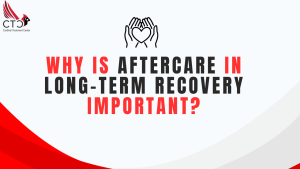
Addiction recovery is a journey, not a destination. For many, completing a rehabilitation program is just the first step in a lifelong process of maintaining sobriety. This is where aftercare becomes a critical component of addiction treatment, providing the necessary support to transition from structured rehab to everyday life. Cardinal Treatment offers robust aftercare programs that prioritize continuity of care, a key to preventing relapse. Let’s explore why aftercare is essential, how it supports long-term recovery, and what makes Cardinal Treatment a leader in this area.
What Is Aftercare in Addiction Treatment?
Aftercare refers to the ongoing support and resources available to individuals after they complete a formal addiction treatment program. This phase of recovery typically includes services such as counseling, support groups, sober living homes, and follow-up medical care. The goal of aftercare is to provide a safety net that promotes accountability, reduces the risk of relapse, and helps individuals rebuild their lives in sobriety.
Key components of aftercare include:
- Individual Counseling: Regular therapy sessions to address triggers and develop coping mechanisms.
-
Support Groups: Peer networks like Alcoholics Anonymous (AA) or Narcotics Anonymous (NA) foster community and shared experiences.
-
Sober Living Homes: Structured environments that offer a gradual transition to independent living.
-
Medical Follow-Ups: For those in medication-assisted treatment (MAT), ongoing monitoring ensures effective management of cravings and withdrawal symptoms.
The Connection Between Aftercare and Long-Term Recovery
Data underscores the importance of aftercare in maintaining sobriety. According to the National Institute on Drug Abuse (NIDA), 40-60% of individuals in recovery relapse without continued support. However, participation in aftercare programs significantly lowers this risk. For example:
- Support Groups: A study published in Addiction found that consistent participation in peer support groups increased the likelihood of maintaining sobriety by 20%.
- MAT Success Rates: Combining MAT with therapy and aftercare reduced opioid relapse rates by 50% compared to therapy alone.
These figures highlight the necessity of comprehensive aftercare, especially during the vulnerable first year of recovery.
Local Focus: Aftercare Services
Southern Ohio offers a unique blend of community support and professional resources for individuals in recovery. Cities like Portsmouth, Ironton, Piketon, and Chillicothe host a variety of programs designed to meet the diverse needs of those transitioning from rehab.
Cardinal Treatment: A Leader in Aftercare
At Cardinal Treatment, we prioritize holistic recovery through a continuum of care. Our aftercare programs include:
- Tailored Therapy Plans: Personalized approaches that address the root causes of addiction.
- MAT Integration: Effective use of medications like buprenorphine and naltrexone alongside therapy.
- Community Engagement: Encouraging participation in local events and support networks to foster belonging.
These initiatives ensure individuals have the tools to maintain sobriety while reintegrating into their communities.
Continuity of Care: Why It’s Essential
The “continuum of care” is a cornerstone of effective addiction treatment. This approach emphasizes seamless transitions between treatment phases—from detox to inpatient care, outpatient programs, and finally, aftercare. Without continuity, individuals face a higher risk of relapse due to abrupt changes in support and structure.
At Cardinal Treatment, continuity of care is a priority. Our programs are designed to:
- Address both physical and mental health challenges.
- Provide consistent monitoring and adjustments to treatment plans.
- Foster long-term relationships between clients and care providers.
The Role of Medication-Assisted Treatment (MAT) in Aftercare
Medication-assisted treatment (MAT) plays a vital role in aftercare for individuals recovering from substance use disorders. MAT combines FDA-approved medications with counseling and behavioral therapies to address both the physical and psychological aspects of addiction.
Why MAT Works
- Craving Management: Medications like methadone and buprenorphine reduce cravings and withdrawal symptoms.
- Improved Retention: Studies show that individuals on MAT are more likely to remain engaged in aftercare programs.
- Enhanced Outcomes: MAT, when paired with therapy, leads to better recovery outcomes compared to standalone treatments.
Cardinal Treatment offers comprehensive MAT programs, ensuring patients receive the medical and emotional support needed for sustained recovery.
Tips for Building a Personalized Aftercare Plan
Recovery is not one-size-fits-all. A personalized aftercare plan is crucial to address the unique challenges and goals of each individual. Key elements include:
- Therapy Sessions: Schedule regular appointments with a licensed counselor.
- Peer Support Groups: Find a local NA or AA chapter for consistent community support.
- Lifestyle Adjustments: Incorporate healthy habits such as exercise, nutrition, and mindfulness practices.
- Family Involvement: Engage family members in therapy to rebuild trust and communication.
- Goal Setting: Establish short- and long-term goals to maintain motivation.
Overcoming Challenges in Aftercare
While aftercare is critical, barriers such as stigma, cost, and transportation can impede access. Southern Ohio addresses these challenges by:
- Offering free or low-cost programs for uninsured individuals.
- Partnering with local transportation services to ensure accessibility.
- Promoting education campaigns to reduce stigma and encourage participation.
Cardinal Treatment also works to eliminate barriers by providing flexible scheduling, telehealth options, and financial assistance programs.
Why Southern Ohio Stands Out for Recovery Support
Southern Ohio’s recovery community is built on collaboration, compassion, and innovation. With programs rooted in evidence-based practices and a culture of support, the region has become a beacon of hope for individuals and families impacted by addiction.
Testimonials
- “After completing rehab, I was nervous about staying sober. Cardinal Treatment’s aftercare program gave me the tools and confidence to rebuild my life.”
- “The support groups in Portsmouth and Ironton have been a lifeline for me. I’ve made lifelong friends who truly understand my journey.”
Conclusion
Aftercare is the bridge that turns short-term sobriety into lifelong recovery. Communities in Southern Ohio, along with facilities like Cardinal Treatment, are leading the charge in making aftercare accessible and effective. Remember, recovery is a journey—and aftercare is your roadmap to success.
If you or a loved one is ready to take the next step, Contact Cardinal Treatment today and discover how their comprehensive aftercare programs can help you thrive.
